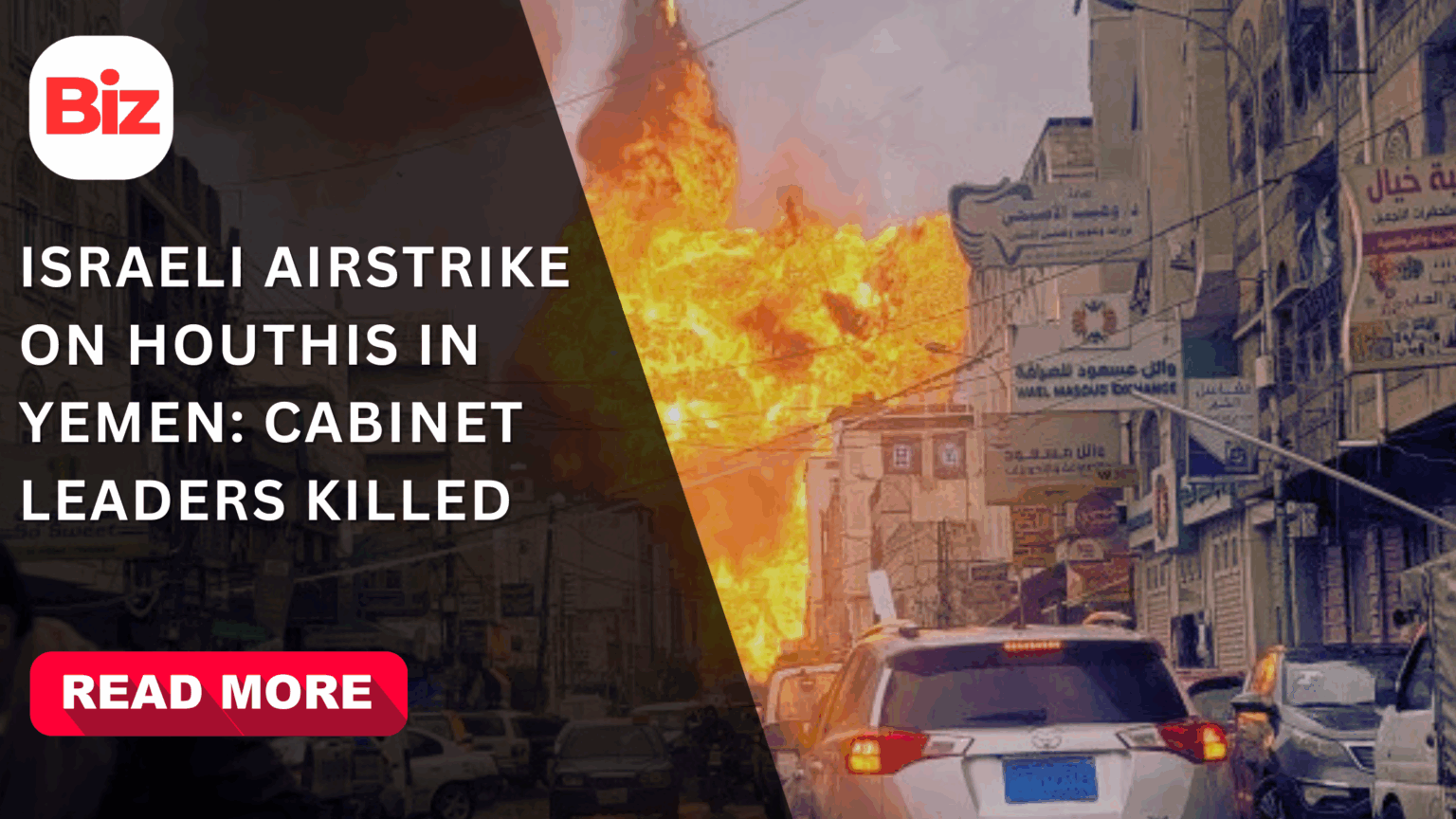A pinpoint Israeli airstrike hit the Houthi-dominated government’s heart in the capital of Yemen, Sanaa. The assault killed Prime Minister Ahmed Ghaleb al-Rahawi and several senior ministers. An unprecedented escalation in the protracted war of words between Israel and the Iran-backed Houthi movement.
Significant Members of the Strike who were killed
Ahmed Ghaleb al-Rahawi, prime minister since August 2024, was killed in an attack on his apartment in the Bayt Baws district of Sanaa
Other casualties included leading ministers of energy, foreign affairs, information, justice, economy and trade, agriculture, public relations in addition to the prime minister’s chief of staff and secretary of cabinet.
Israeli intelligence estimates the attack may have killed the entire Houthi cabinet, including the defense minister Mohamed al-Atifi and chief of general staff Muhammad Abd al-Karim al-Ghamari.
The Strike: Situation and Performance
The airstrike was directed against several high-class establishments:
A conference hall where senior Houthi officials had gathered to watch a speech by leader Abdul-Malik al-Houthi.
a separate flat used by Houthi Prime Minister al-Rahawi.
Immediate Reactions and Aftereffects.
The Houthi leadership affirmed the deaths and said Deputy Prime Minister Mohamed Moftah will take over al-Rahawi’s position. Houthi leader Mahdi al-Mashat issued a statement of defiance, vowing revenge and signaling a ratcheting-up of the group’s resistance activities.
Broader Implications
The strike represents the first time Israel is believed to have managed to kill such senior Houthi officials. Highlighting an increasing ability to target leadership in the region – potentially shifting the geopolitical balance.
The move follows a broader fighting that has been fuelled by Houthi strikes on shipping lanes in the Red Sea. The missile launches against Israel as a show of solidarity with Palestinians in Gaza.
Strategic Implications for the Israeli State
The assassination of Yemen’s Houthi cabinet is a manifestation of Israel’s desire to destroy the political and military leadership. Houthis aew now one of the active players in the Red Sea dispute. By targeting Prime Minister Ahmed Ghaleb al-Rahawi and senior ministers, Israel sought not only to disrupt command-and-control structures. But to deliver a message that no Houthi leadership figure is safe. This may be disruptive to Houthi operational planning in the short term, but has the potential to aggravate retaliation.
Houthi Response and Stability of Authority
While the loss of top leaders is a serious setback, historically the Houthis have displayed a knack for resilience. Appointment of Deputy Prime Minister Mohamed Moftah as transitional leader. The appointment of Deputy Prime Minister Mohamed Moftah indicates the movement’s attempt to ensure continuity and prevent internal divisions. Yet such abrupt changes in leadership almost invariably leave holes in decisions and morale that may delay the group’s ability to plan attacks in the weeks ahead.
Regional and Global Implications.
The attack highlights the escalation of the Israel-Houthi conflict from symbolic match-ups to leadership decapitations. This causes alarm for Gulf states and other actors internationally as Houthis represent a main ally of Iran. The buildup may add additional pressure on maritime security, posing a threat to shipping lanes in the Red Sea and Gulf of Aden, which are important for international trade. That is a challenge for Iran, and a rallying call. Tehran could ramp up support to the Houthis as a blow back, wreaking further havoc in the region.
The Civilian Dimension
Another layer of the strike is across the civilian spectrum. Performing attacks in a highly populated area like Sanaa incurs the danger of collateral damage. Even if strikes are precision-guided, the destroyed political offices and residences bring into question whether such strikes serve to increase the humanitarian crisis in Yemen, where millions are already suffering famine, disease, and displacement.








